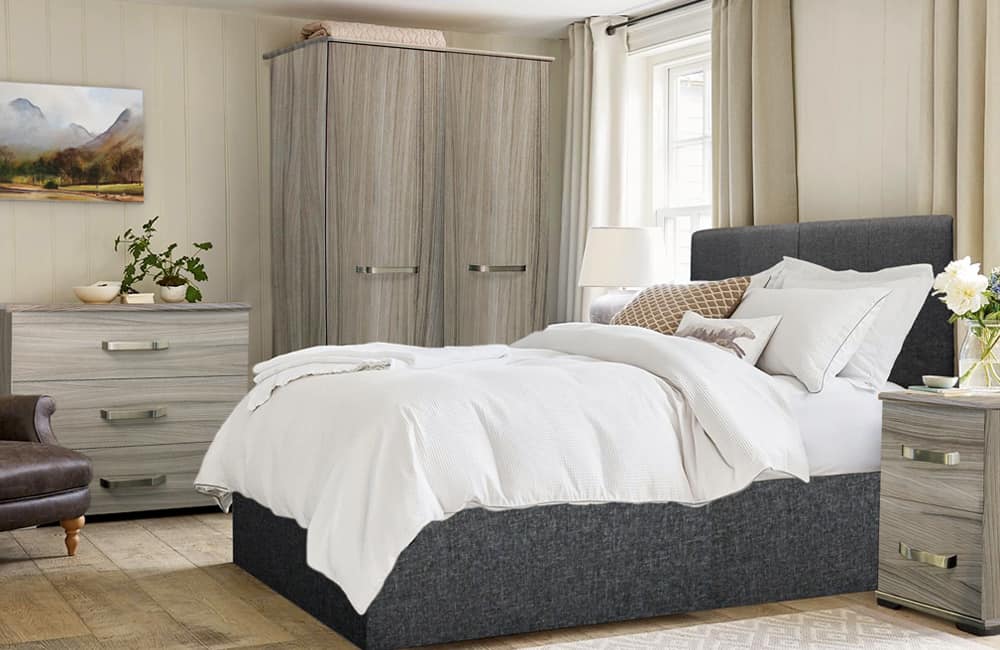Landlords renting out properties can take advantage of a popular sector – houses in multiple occupation, commonly known as HMO accommodation.
Government statistics reveal there are an estimated 497,000 HMOs in England and Wales. The sector has enjoyed significant growth in recent years and now accommodates more than 4.5 million people.

What is HMO accommodation?
A home is classed as a house in multiple occupation if at least three tenants are living there, in more than one household, with a shared bathroom, toilet and kitchen facilities. The home is classed as a large HMO if there are at least five tenants living there in more than one household, with shared facilities.
One household is classed as either a single person or members of a family who live together, such as a married couple, a couple co-habiting, relatives such as grandparents, aunts and uncles, siblings, step-parents and step-children.
What furniture should be provided?
Landlords who are furnishing HMO accommodation should look for competitively-priced furniture, which doesn’t compromise on quality. The property should look inviting to attract tenants, without breaking the bank, in terms of furnishings.
The standard requirements for any HMO include a 4ft or double bed, a double wardrobe, a chest of drawers and a bedside table, as the accommodation for one person or household is often one room, which doubles up as a bedroom and living room.
You should provide good-quality sleeping arrangements, with divan beds being particularly useful, as they offer extra storage space. Quite a few landlords will include desks as well, which are a bonus for people working from home, or for a personal computer.
The place should be decorated to a professional finish before the furniture is brought in – it goes without saying that the furniture should complement the décor. There are many choices when it comes to modern furniture packages for HMOs. Classic beech is always popular, as it offers a timeless finish that’s compatible with almost every colour palette. For a more contemporary, dramatic effect, choose black, graphite or matt grey furniture. The choices are endless.
Should landlords provide any extras?
As well as the standard furniture requirements, landlords can provide optional extras in order to make their property more inviting. You can add artwork, bedside lamps, extra chests of drawers, rugs or mirrors to enhance the property. Of course, the landlord is also expected to furnish the communal kitchen and lounge or dining area, as well as the individual bedrooms.
The kitchen commonly includes a fridge/freezer, storage area, washing machine, oven and hob, tumble dryer and microwave oven. The living area normally includes a dining table and chairs, settee, television set and storage space. Although it is not a legal requirement to provide these specific items, it is generally expected. Considering the competition among landlords renting out HMOs, you need your property to look as appealing as possible.
Everything must be provided in sufficient quantities and sizes for the number of tenants. For instance, if you have five tenants, you should provide a fridge-freezer that is suitable for storing food for five people.
Who’s responsible for the furniture?
The landlord is responsible for dealing with any damage inflicted to items of furniture in communal areas of the property. In regular single-let situations, the tenant would be responsible. This rule doesn’t apply to furnishings provided in the tenants’ room, or to the tenants’ own possessions.
General wear and tear is classed as a natural side-effect of everyday use. Unfortunately, HMOs can be prone to a little damage due to the number of people living there. It is the landlord’s responsibility to replace any items that become unusable due to everyday use.
Paying for repairs, even for damage caused by tenants in communal areas, is one of the pitfalls of renting out HMOs. It can be difficult to pinpoint which tenant has caused the damage if nobody is willing to own up to it. However, the financial benefits compensate for this issue.
If you’re a landlord looking to furnish HMO properties with high-quality furniture, at a price you can afford, contact Furniture Pack Solutions on 0800 781 9427 or email info@furniturepack.co.uk.
